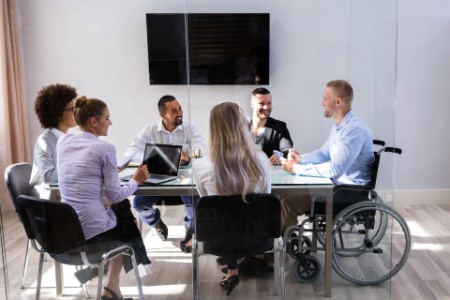Hidden disabilities
People with disabilities, in general, are considered a marginalized and discriminated group in all societies. Unfortunately, women and girls with disabilities face ‘double discrimination’ with an increased risk of gender-based violence. A disability is not always obvious and easy to notice. People usually associate disability with wheelchair users, blind or partially sighted or hard of hearing people – all outward signs that people have a disability. However, many people are suffering from chronic diseases or mental health impairments, also known as invisible disabilities, which can have a significant impact on the quality of life and can limit the ability to complete daily activities. Some of the most common 'unseen' or 'hidden' disabilities are anxiety, depression, fibromyalgia, bipolar disorder, acquired brain injury (ABI), and Autism Spectrum Disorder (ASD).
The effects of COVID-19
The global COVID-19 pandemic affected all of us, but more so people with disabilities who are more likely to experience difficulties in accessing social protection, transport, education, or health services. However, the effects of the pandemic are surfacing among people who did not show any signs of 'invisible' disabilities before the lockdown.
Financial pressures, lack of social interaction, fear of the unknown or bereavement are just some factors intensifying the occurrence of invisible disabilities, and this is now becoming apparent as health professionals are seeing an increase in the number of people suffering from anxiety, stress or depression. The recent WHO survey conducted this year in 130 countries ‘The impact of COVID-19 on mental, neurological and substance use services’ reveals that the demand for services is increasing directly or indirectly due to the COVID-19 pandemic. The results of the survey also show that over 60% of the countries reported disruptions to mental health services for vulnerable people, including children and adolescents (72%), older adults (70%), and women requiring antenatal or postnatal services (61%).


